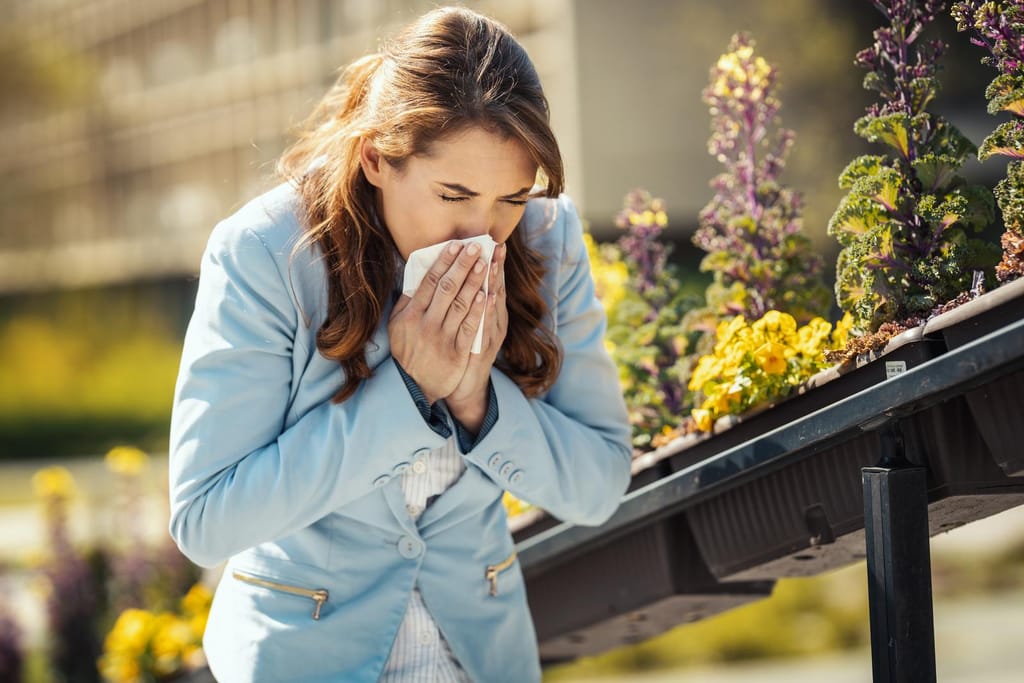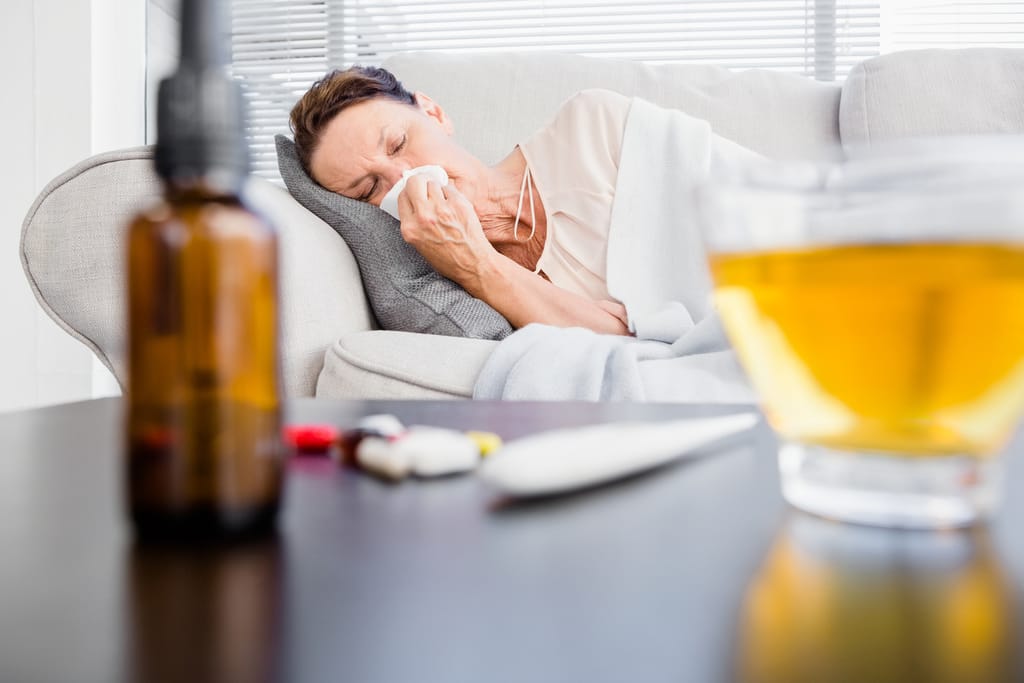What are allergens?
An allergen is a substance that can lead to an allergic reaction to some individuals. We can find allergens in pollen, pet dander, dust, food, or certain chemicals. When an allergen gets in the body, it can lead to the immune system to overreact. This can induce symptoms such as sneezing, a runny nose, itchy eyes, or a rash. Allergies can range from mild to life-threatening. There is no remedy for allergies, but there are treatments that can help deal with symptoms.
 what are allergens?
what are allergens?
Symptoms and treatment of allergies
Lots of people suffer from allergies each year, according to the National Institute of Allergy and Infectious Diseases. An overreaction of the immune system to a particular substance, such as a protein, cause allergies. This substance is called an allergen. When an individual with allergies is exposed to an allergen, the immune system reacts by discharging histamine and other chemicals. Symptoms vary depending on the person and the allergen.
Some of the most frequent symptoms of allergies are a runny nose, sneezing, itchy eyes, and a sore throat. Allergies can also induce asthma attacks, which can lead to wheezing, chest tightness, and shortness of breath. Allergies can cause anaphylaxis, a life-threatening reaction that can include swelling of the throat, difficulty breathing, and a drop in blood pressure.
The best way to treat allergies is to avoid the allergens that cause them. If that is not possible, then drugs such as antihistamines, decongestants, and corticosteroids can help to control the symptoms. People with allergies may need to use an EpiPen to treat anaphylaxis.
Identifying allergens
The first step in identifying allergens is to be aware of your own individual allergies and triggers. Allergy testing is available to provide information about which allergens affect you. It is also important to be aware of the common sources of allergens and their potential to cause an allergic reaction.
Once you have identified potential allergens, it is important to reduce your exposure to these substances as much as possible. For example, if you are allergic to pollen, keep windows and doors closed during high-pollen times, such as early morning and late afternoon. If you are allergic to pet dander, keep pets outdoors or out of the bedroom.
You can also reduce your risk of an allergic reaction by avoiding certain foods that contain allergens. Read food labels carefully and avoid any ingredients that you may be allergic to. If you are not sure whether a food contains an allergen, it is best to avoid it.
It is important to take precautions when cleaning your home. Vacuum carpets and furniture regularly to reduce the amount of allergens in the air. Use allergen-proof covers on mattresses and pillows to reduce exposure to dust mites.

Tips
Avoid contact with animals: Exposure to pet fur, dander, and saliva can trigger allergies in some people. If you have allergies, try to limit contact with animals, and if possible, keep them out of your home.
Use air filters: Invest in air filters for your home and/or office to help reduce the amount of allergens in the air. Choose a filter that has a high enough MERV rating to trap the smallest particles, such as dust, pollen, and mold spores.
Wear a mask: If you must go outside, wear a face mask to help prevent contact with airborne allergens. Choose a mask made of a material designed to filter out small particles.
Avoid outdoor activities: Pollen and other allergens are more likely to be present in the air during certain times of the day, such as in the early morning or late evening. Try to avoid outdoor activities during these times if you can.
Change clothes after being outside: Once you come inside, immediately change your clothes to avoid bringing allergens into your home. Wash your clothes in hot water to help reduce the amount of allergens in them.
Keep windows closed: To prevent allergens from entering your home, keep your windows closed, especially during allergy season or on days when the air quality is poor.
Clean regularly: Clean your home to help reduce the amount of allergens that can accumulate. Vacuum and use a damp rag for dusting.
Clean bedding: Vacuum or wash your bedding to help reduce the amount of allergens in your bedroom. Use a vacuum with a HEPA filter to trap the small particles that can trigger allergies.

Allergy testing
Allergy testing can be an important tool in helping to identify allergens and manage your allergies. Allergy testing can be performed at a doctor’s office or at home. It is important to understand the different allergens in order to select the best testing method for your needs.
The most common allergens are foods, dust mites, pet dander, pollen, and mold. Foods are the most common cause of allergic reactions, and the type of food allergy will vary from person to person. Dust mites, pet dander, and pollen are airborne allergens which can cause respiratory symptoms such as sneezing and an itchy or runny nose. Mold is another allergen which can cause respiratory symptoms and skin reactions.
When having an allergy test, it is important to understand the different tests available. Blood tests, such as the Immunoglobulin E (IgE) test, are used to identify specific allergies and measure the levels of specific antibodies in your blood.
Skin tests, such as the prick or scratch tests, are used to identify an allergic reaction to a specific allergen by exposing the skin to the allergen and observing the resulting reaction. It is also important to understand the potential risks of allergy testing.
Allergy testing can cause a reaction due to an allergen, so it is important to be aware of the potential risks before having the test. Although skin tests are considered safe, they can cause an allergic reaction.
Allergens and the environment
Allergens affect the environment in several ways. Allergens can cause air pollution when they are released into the air because of burning, agricultural activities, and other activities. These allergens can also cause soil and water contamination, as they can be absorbed into the ground and water sources. Allergens can cause damage to plants and animals, as they can cause respiratory and skin irritation, as well as allergic reactions.
The health of those exposed to allergens can also be affected. Allergens can cause a wide range of symptoms, including sneezing, coughing, itching, watery eyes, and difficulty breathing. Sometimes, a severe allergic reaction can occur, which can be life-threatening. The best way to reduce the negative impact of allergens on the environment and people’s health is to avoid exposure as much as possible. This can be done by limiting activities that may release allergens into the environment, such as burning and agricultural activities.
It is also important to ensure that you keep all indoor and outdoor areas clean and free of allergens. People who have allergies should take steps to avoid exposure to allergens, such as avoiding areas where allergens are present and taking medications that can reduce the severity of their symptoms.

Latest research
The latest research on allergens suggests that one of the most effective methods of reducing exposure is to keep indoor air clean. Air purifiers can help to reduce the amount of allergens in the air by trapping them in the filter. Vacuuming carpets and other upholstery regularly can also help to reduce the amount of allergens in the air. It is also important to clean bedding and other fabrics regularly, as allergens such as dust mites can easily accumulate on these surfaces.
Another way to minimize exposure to allergens is to reduce the amount of moisture in the home. Allergens such as mold and dust mites thrive in humid environments, so it is important to keep indoor humidity levels low. This can be done by using a dehumidifier and ensuring that any leaks or standing water are taken care of. Keep windows and doors closed when possible. This will help to keep allergens from entering the home, as well as help to keep humidity levels low. Avoid going outside when pollen counts are high, as this will reduce the amount of pollen that is brought into the home. It is important to be aware of the specific allergens that an individual is sensitive to. This will help to identify the places and activities that should be avoided in order to reduce exposure. For example, if an individual is allergic to cats, it is important to avoid areas where cats are present.
Conclusion
Allergens are a type of antigen that can cause an allergic reaction in some people. We find allergens in many places, including food, pollen, and dust.
Reference
- Allergens and Pollen | CDC. (n.d.). https://www.cdc.gov/climateandhealth/effects/allergen.htm
- Allergies – Symptoms and causes – Mayo Clinic. (2022, August 5). Mayo Clinic. https://www.mayoclinic.org/diseases-conditions/allergies/symptoms-causes/syc-20351497
- Wikipedia contributors. (2023a, January 29). List of allergens. Wikipedia. https://en.wikipedia.org/wiki/List_of_allergens
- Wikipedia contributors. (2023b, March 1). Allergen. Wikipedia. https://en.wikipedia.org/wiki/Allergen